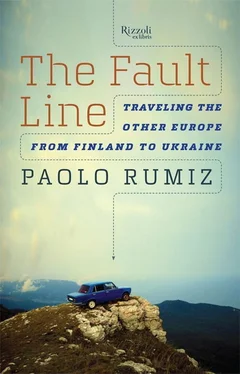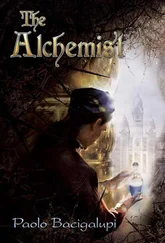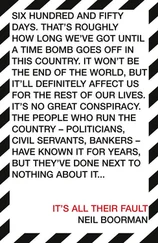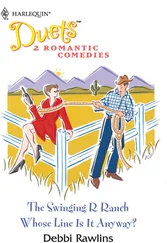Having a terrestrial limit to hold on to is a blessed thing, and I’m immediately overcome by a rush of good cheer that breaks the dam of reserve between me and my fellow passengers. I offer my neighbors some Uzbek apricots and Bulgarian almonds purchased in Kaliningrad. They thank me and return the favor with pumpkin seeds (another sign of the South!), laugh with a full display of teeth in their bony, caravanesque faces. Who are they? Alans? Sarmatians? Dacians? The legendary Scythians, who ensnared and defeated the Persians on the endless plains? They’re also asking who we are, with our long thin faces and blue-green eyes staring out at the long wave of the last horizon.
Let me try to recapitulate how I ended up in the middle of these people. It all happened in a flash. Outside the train station in Lviv we hopped on the first bus directed toward the Carpathians, to throw ourselves into that frontier “entanglement” where Poland, Slovakia, Hungary, and Ukraine all touch each other. “Run, run, and you might make it,” they told me at the ticket booth, pointing at a bus with its motor running in the middle of a hundred or so motor coaches haphazardly parked in front of the station. If I had stopped in Lviv, I would have lost myself in the city. Too much fascination in that city-bazaar, Gothic, Slav, and Jewish, so Northern for those who come there from the South and so Southern for those who arrive from the North. For the Italian soldiers on their way to the Don, Lviv was the place of their disillusionment. They saw emaciated Jews on the train tracks, pushed and shoved by German soldiers with whips, and they realized what a heinous cause they were going to fight for.
The bus starts to climb and enters the first tunnel on its route, crosses the newborn Dniester, and everything changes again. The Ukrainian neglectfulness ends together with the plain and is replaced by valleys of Alpine tidiness, sprinkled with pagoda-roofed wooden churches. Another frontier between cultures. What to do? The place is worthy of a stopover, but should I get off here? Are there hotels? Inns? Try looking in Turka, they tell me, maybe you’ll find something there. We get off in Turka, but there’s not even the shadow of a bed, and night is about to fall. Poland is right next door, and the border is a tough one. They told me in Warsaw that the Chechen mafia makes money from smuggling across that mountainous border.
The Dnieper Inn emanates an excellent aroma of soup and welcomes us like shipwreck survivors. We order dinner and ask for information, but the waitress knows nothing; she’s not from here. Just as in Italy, the young people have lost a consciousness of place. So I try my luck with a merry table of customers at the bar, three women and four men.
“Why don’t you have a car?” they ask us immediately, looking at our backpacks.
I shoot back, “Because we’re crazy.”
They burst out laughing, followed by a round of vodka.
I ask if there are really Chechens in these mountains.
Another laugh with the reply that those are just Polish fables. “But you two,” they ask, “what are you doing here?”
I tell them about my vertical Europe, about Murmansk still covered in snow and about the EU frontier. They’re left with their mouths agape. “Then you really are crazy!”
But the conclusion is fated: “You did well to come here. In the Carpathians we have open minds.” Meanwhile, the second round of vodka arrives, and the dinner companions open up. The most talkative is the mayor of Turka, Yevstaky Ivanovich. The second is Ivan, a rascal police officer. The third is Bogdan, a friend of the group who offers to take us to a motel and, the next morning, on a tour of the nearby villages.
“You can trust Bogdan,” says the mayor, “the important thing is that you don’t trust the police officer. The police always lie.” More laughter. One of the women at the table explains that the mayor won the election with good humor. Like this, telling jokes.
“Is that right, Yevstaky Ivanovich?” I ask him.
“I’m a Boyko, and you can say whatever you like.” The Boykos are one of the ethnic minorities of the Carpathians. Monika knows them well.
I ask if there are Jews in Turka.
“There were lots of them. Today there is only one left. But he… is careful not to tell anyone.” More laughter, this time with mouths closed. Yevstaky urges me on like a Cossack: “Drink up, have one for your horse, too!” They had warned me: careful of the Carpathians; they’ll drown you with vodka and hospitality.
Confirmation arrives promptly.
We head for the longed-for hotel in an indescribable sunset, apple green and apricot, outlined by the serrated profile of the pine groves, amid meadows covered with pale blue fog. In the distance, a lighted train makes a wide, slow curve in ascent. It brilliantly overcomes the steep slope with endless turns and switchbacks. “That’s the Elektrichna,” Bogdan explains, “the Austrians built the line in 1905.” The whistle train that goes up and down the valley and connects with the Trans-Carpathian, toward Hungary, along the watershed that was one of the bloodiest fronts of the Great War. That’s how we’re going to continue our journey.
In the motel, crowded with hyperexcited excursionists, the only available place is over the sauna, and in the room—all in flammable wood—it is at least 100°. But that’s no problem, I’m carried off by a leaden sleep. But at two in the morning, the temperature goes up to 120°, and from underneath me comes a concert of thumps, barbaric grunts, and female whoops. Pandemonium, with the flame from the sauna crackling distinctly just inches under my bed. The room is full of smoke even though the windows are wide open. I go outside to breathe some fresh air, and I realize that this incendiary earthquake is the only hotbed of noise in the boundless silence of the Carpathians.
The next day, they take us to a wooden church near the source of the Dniester. The nave breathes, creaks, hisses, resonates like the bottom of a boat. The pope sings the Lord’s Prayer with just two notes, repeats ad infinitum the word Gospod , Lord, and the women respond in chorus. Candles around the icons, children serious as soldiers, in white shirts. It’s a mixture of Baroque Austria and Orthodox Russia, Rome and Byzantium, all smelling of resin and decorated with lighted candles like Christmas. Monika has been traveling in Central Europe for twenty years, away from the centers of power and the delirium of ideologies. In places like the Carpathians, you understand clearly that in church what is celebrated is the community, and the sense of limits that looms over it.
Out on the street, a grandmother, with a red handkerchief, and a little girl, her granddaughter, dressed as a bride. She is dressed like that for her mother’s birthday, but her mother has nine children and can’t afford to keep her at home.
So she lives with her old Osipa, Josephine. “They gave me my name because I was born on Christmas,” she explains, and recounts that she was once a telephone operator and then the letter carrier for the town. “I went around on a bicycle, even in the snow. A hard job but nice, because you get to talk with everyone.”
Osipa has a serene face and lots of tragedies behind her. Here the whole peasant world seems to be suffering unspeakably, even in these towns with genteel names like Strawberry or Apple. Just a while ago, in another church, we heard the pope cry out that “the devil has entered our community” and something had to be done. People were arguing heatedly, the parish was being attacked, and the enemy could have but one name, Satan. Josephine tells us atrocious things: a son of hers was burned alive—she repeats “burned alive”—by a madman. The other son was taken from her at age twenty-five by cancer. And her daughter isn’t able to bring up all those children by herself, so she has to give her a hand with the produce from her vegetable garden. She makes us a present of a liter and a half of fresh goat’s milk that we would drink later, sitting between a sheaf of wheat and a stream.
Читать дальше












